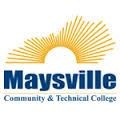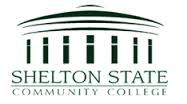What do they do?
Perform routine administrative functions such as drafting correspondence, scheduling appointments, organizing and maintaining paper and electronic files, or providing information to callers.
Also known as:
Administrative Assistant (Admin Assistant), Administrative Associate, Administrative Clerk, Administrative Coordinator, Administrative Resources Associate, Administrative Secretary (Admin Secretary), Administrative Specialist (Admin Specialist), Administrative Support Assistant (ASA), Administrative Technician, Department Secretary, Office Administrator, Office Assistant, Office Secretary, School Attendance Secretary, School Secretary, Secretary, Staff Assistant
-
-2.2%
Change
Ranks #54 in job growth rate6,550Job Openings
Ranks #9 in net job growth
Colleges with the most graduates that become Secretaries and Administrative Assistants, Except Legal, Medical, and Executive
Looking for colleges that offer a specific major? Use the College Match Tool to find your best-matched schools and discover your estimated Net Price!
- Some college, no degree (31%)
- High school diploma equivalent (26%)
- Bachelor's degree (21%)
- Associate's degree (15%)
- Master's degree (4%)
- Less than high school diploma (3%)
- Doctorate or Professional Degree (1%)
People in this career often have these skills:
- Active Listening - Giving full attention to what other people are saying, taking time to understand the points being made, asking questions as appropriate, and not interrupting at inappropriate times.
- Speaking - Talking to others to convey information effectively.
- Reading Comprehension - Understanding written sentences and paragraphs in work-related documents.
- Writing - Communicating effectively in writing as appropriate for the needs of the audience.
- Service Orientation - Actively looking for ways to help people.
- Time Management - Managing one's own time and the time of others.
People in this career often know a lot about:
- Administrative - Knowledge of administrative and office procedures and systems such as word processing, managing files and records, stenography and transcription, designing forms, and workplace terminology.
- English Language - Knowledge of the structure and content of the English language including the meaning and spelling of words, rules of composition, and grammar.
- Computers and Electronics - Knowledge of circuit boards, processors, chips, electronic equipment, and computer hardware and software, including applications and programming.
- Customer and Personal Service - Knowledge of principles and processes for providing customer and personal services. This includes customer needs assessment, meeting quality standards for services, and evaluation of customer satisfaction.
- Administration and Management - Knowledge of business and management principles involved in strategic planning, resource allocation, human resources modeling, leadership technique, production methods, and coordination of people and resources.
People in this career often have talent in:
- Oral Comprehension - The ability to listen to and understand information and ideas presented through spoken words and sentences.
- Written Comprehension - The ability to read and understand information and ideas presented in writing.
- Oral Expression - The ability to communicate information and ideas in speaking so others will understand.
- Written Expression - The ability to communicate information and ideas in writing so others will understand.
- Near Vision - The ability to see details at close range (within a few feet of the observer).
- Speech Recognition - The ability to identify and understand the speech of another person.
- Speech Clarity - The ability to speak clearly so others can understand you.
- Information Ordering - The ability to arrange things or actions in a certain order or pattern according to a specific rule or set of rules (e.g., patterns of numbers, letters, words, pictures, mathematical operations).
People in this career often do these activities:
- Answer telephones to direct calls or provide information.
- Discuss account status or activity with customers or patrons.
- Refer customers to appropriate personnel.
- Greet customers, patrons, or visitors.
- Enter information into databases or software programs.
- Operate computers or computerized equipment.
- Execute sales or other financial transactions.
- Collect deposits, payments or fees.
- Operate office equipment.
- Report maintenance or equipment problems to appropriate personnel.
- Select resources needed to accomplish tasks.
- Record personnel information.
- Operate communications equipment or systems.
- Schedule appointments.
- Record information from meetings or other formal proceedings.
- Issue documentation or identification to customers or employees.
- Distribute materials to employees or customers.
- Prepare documentation for contracts, transactions, or regulatory compliance.
- Develop organizational policies or programs.
- Prepare employee work schedules.
- Order materials, supplies, or equipment.
- Send information, materials or documentation.
- Compile data or documentation.
- Schedule operational activities.
- Make travel, accommodations, or entertainment arrangements for others.
- Search files, databases or reference materials to obtain needed information.
- Route mail to correct destinations.
- Distribute incoming mail.
- Supervise clerical or administrative personnel.
- Proofread documents, records, or other files to ensure accuracy.
- Manage clerical or administrative activities.
- Coordinate operational activities.
- Maintain current knowledge related to work activities.
- Train personnel.
- Transcribe spoken or written information.
- Prepare informational or reference materials.
- Develop computer or online applications.
This page includes data from:

 Occupation statistics: USDOL U.S. Bureau of Labor Statistics Occupational Employment Statistics
Occupation statistics: USDOL U.S. Bureau of Labor Statistics Occupational Employment Statistics
 Videos: CareerOneStop, USDOL/ETA and the Minnesota Department of Employment & Economic Development
Videos: CareerOneStop, USDOL/ETA and the Minnesota Department of Employment & Economic Development












